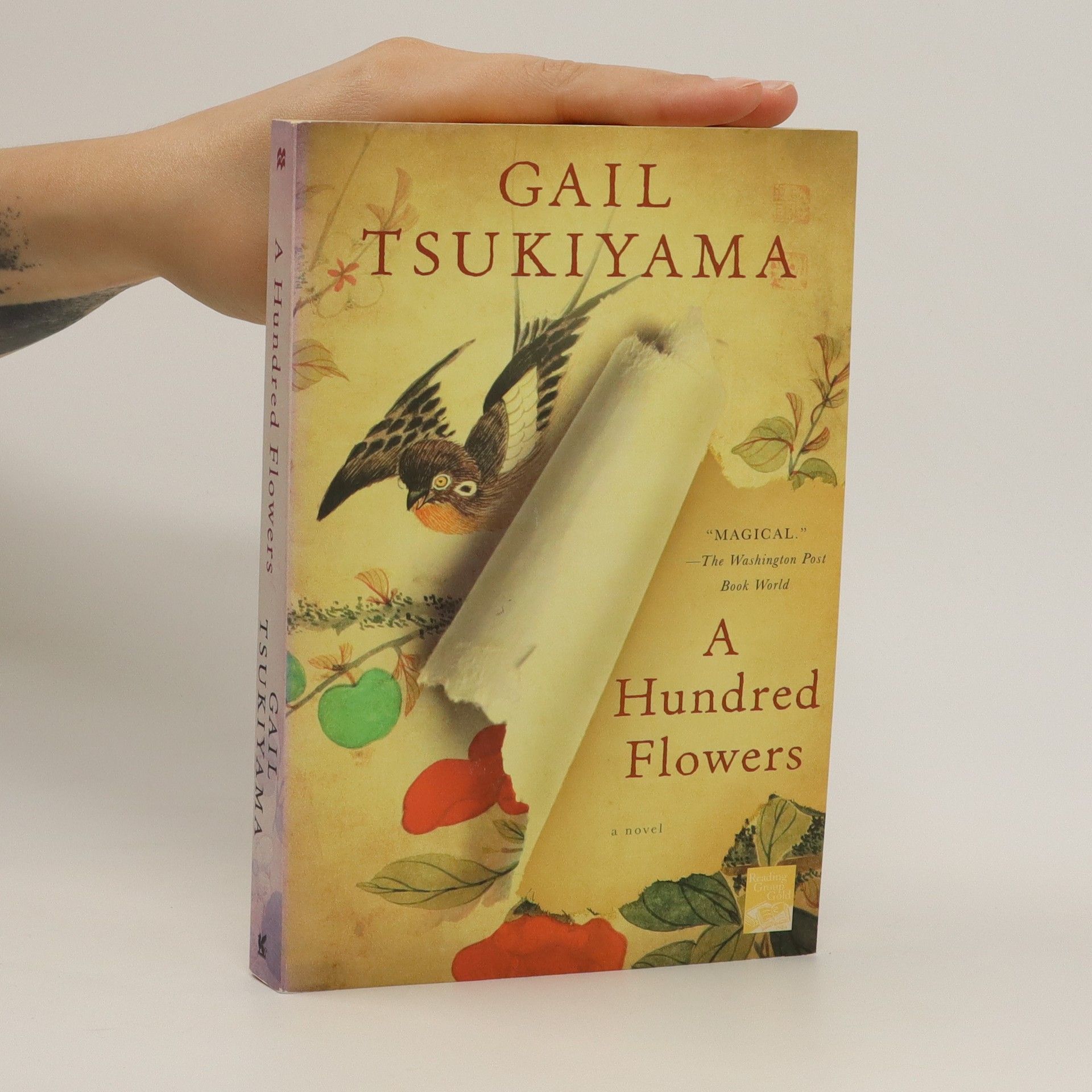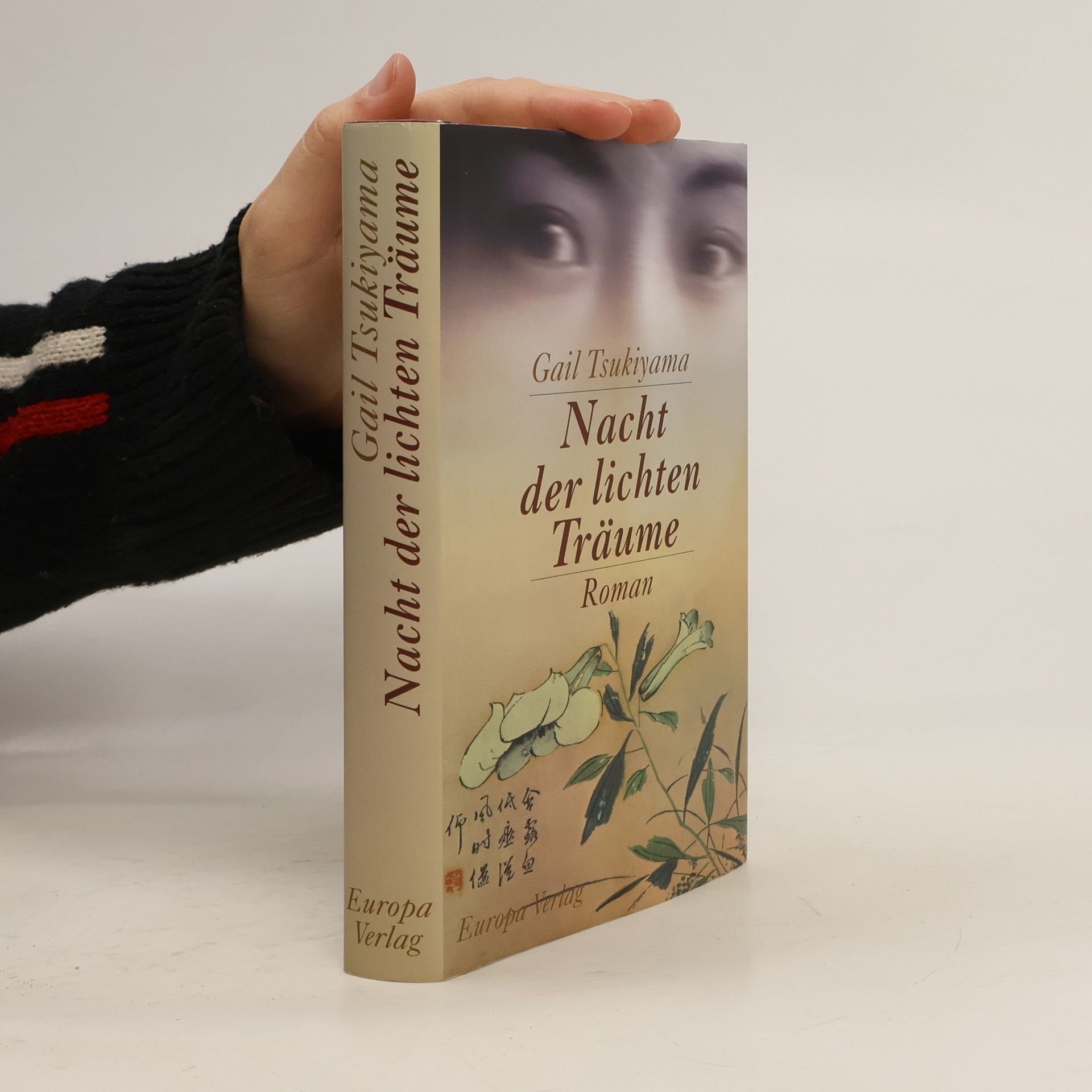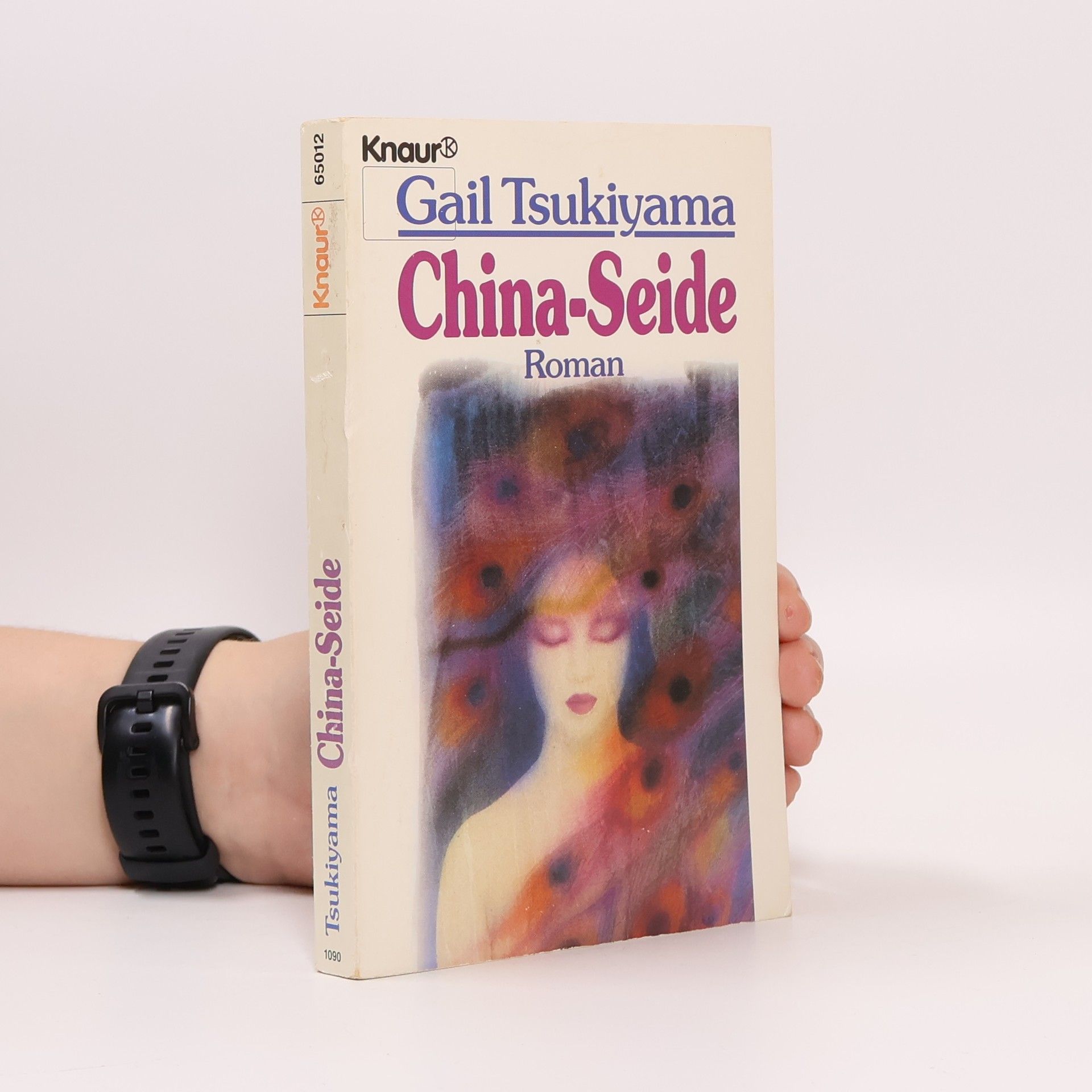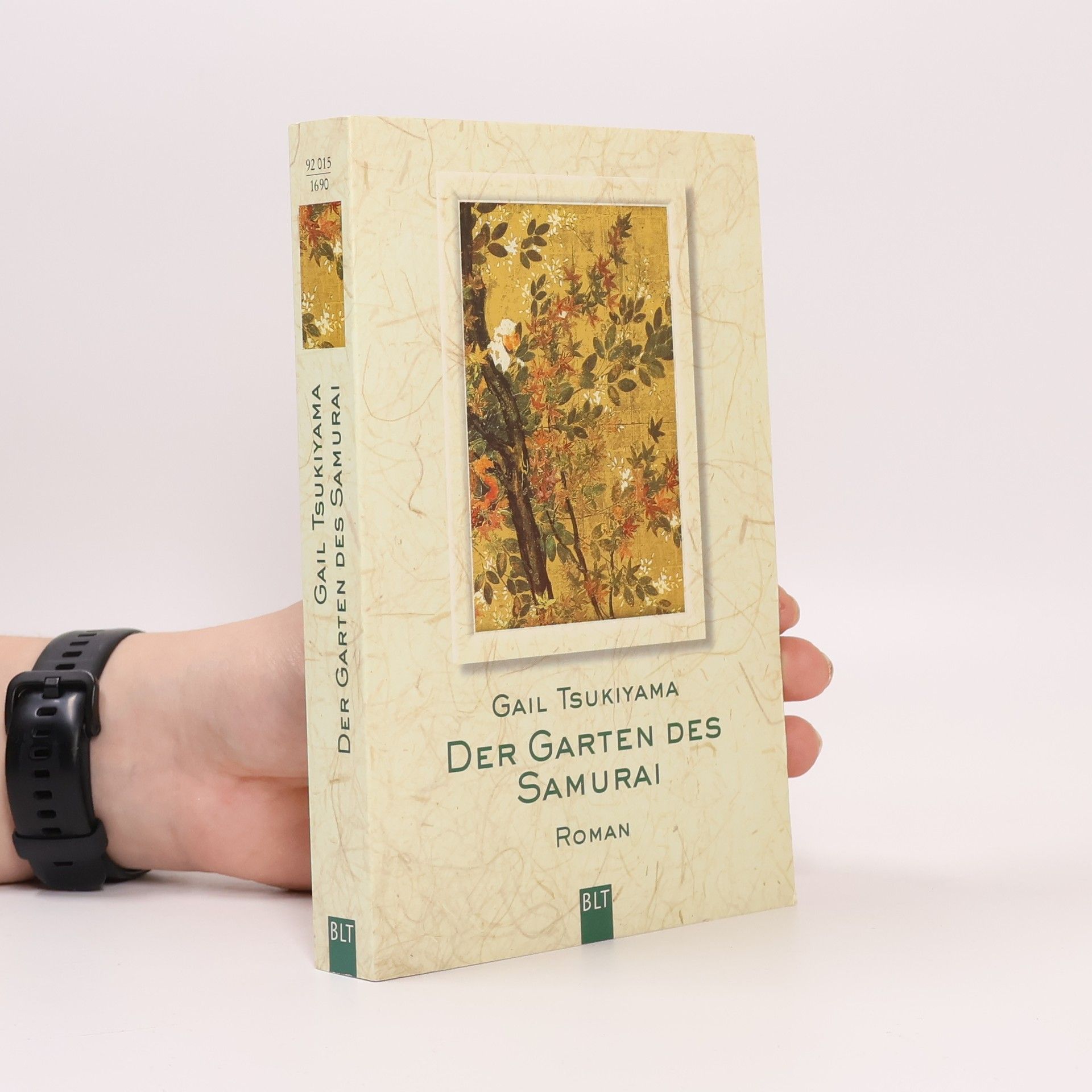Der junge Chinese Stephen Chan wird 1937 in das Ferienhaus seiner Familie geschickt, um sich von einer Tuberkuloseinfektion zu erholen. Fremd erscheint ihm anfangs die Stille des Hauses im kleinen japanischen Ort Tarumi, aber ihn berührt die strenge Schönheit des Gartens, den der Hausverwalter Matsu in jahrelanger Arbeit erschaffen hat.§Eine wortkarge Freundschaft entwickelt sich zwischen den beiden. Endlich führt Matsu ihn zu Sachi, einer Frau, die ihr Gesicht mit einem Tuch verhüllt. Stephen ist fasziniert von der Schönheit, die er nur unvollständig sehen darf. Da zieht Sachi den Schleier zurück: ihre andere Gesichtshälfte ist von Lepranarben zerstört. Stephen bemüht sich, ihr Geheimnis zu erfahren und wird hineingezogen in das Schicksal, das Sachi und Matsu über Jahrzehnte miteinander verbunden hat.
Gail Tsukiyama Bücher
Gail Tsukiyamas Romane erforschen die komplexen Beziehungen zwischen Frauen und die Auswirkungen historischer Ereignisse auf ihr Leben. Ihr Schreiben zeichnet sich durch einfühlsame Charakterdarstellungen und lyrische Prosa aus. Tsukiyama befasst sich oft mit Themen der kulturellen Identität und der Suche nach Sinn inmitten herausfordernder Umstände. Ihre Werke werden für ihre Tiefe und emotionale Resonanz geschätzt.







China in den zwanziger Jahren: Bereits als kleines Mädchen muss Pei in einer Seidenfabrik arbeiten. Anfänglich leidet sie unter der Trennung von ihrer Familie, erwirbt sich aber allmählich immer mehr Selbständigkeit.
Tokio 1939. In der Straße der tausend Blüten wachsen zwei Brüder ohne ihre Eltern auf, liebevoll umsorgt von ihren Großeltern. Wie diese träumen sie von einer Zukunft, die fest in den Traditionen des alten Japan verankert ist. Doch bald bricht im Land eine neue Zeit an, in der es keinen Platz mehr für die alten Werte zu geben scheint. Werden Hiroshi und Kenji ihren Weg in einer veränderten Welt finden?
Nacht der lichten Träume
- 318 Seiten
- 12 Lesestunden
Von Hongkong bis San Francisco von den frühen 30ern bis in die späten 60er Jahre spannt sich der Bogen dieser einfühlsam erzählten Familiengeschichte, in deren Mittelpunkt die unterschiedlichen Entwicklungen zweier japanischer Schwestern stehen. Emmy und Joan Lew erleben als Kinder, wie japanische Truppen das bunte Leben in Hongkong ersticken. Gemeinsam leiden sie unter der gesellschaftlichen Deklassierung ihres Vaters, aber auch unter der Angepaßtheit und Enttäuschungsbereitschaft ihrer Mutter, die sich immer mit der traditionellen Frauenrolle zufriedengegeben hat. §Glücklicherweise ist da noch Auntie Go, eine warmherzige, entschlußkräftige und vorurteilsfreie Frau. Mit großem Geschick vertritt sie die Interessen ihrer Nichten bei ihrer Mutter: Emma träumt davon, ihren Bildungshunger und ihr Fernweh auszuleben, und Joan, die impulsivere und hübschere der beiden, gibt die Hoffnung nicht auf, in der Filmindustrie Fuß zu fassen, die in Hongkong nach dem Zweiten Weltkrieg aufblüht.
A Hundred Flowers
- 320 Seiten
- 12 Lesestunden
Gail Tsukiyama's A Hundred Flowers is powerful novel about an ordinary family facing extraordinary times at the start of the Chinese Cultural Revolution China, 1957. Chairman Mao has declared a new openness in society: "Let a hundred flowers bloom; let a hundred schools of thought contend." Many intellectuals fear it is only a trick, and Kai Ying's husband, Sheng, a teacher, has promised not to jeopardize their safety or that of their young son, Tao. But one July morning, just before his sixth birthday, Tao watches helplessly as Sheng is dragged away for writing a letter criticizing the Communist Party and sent to a labor camp for "reeducation." A year later, still missing his father desperately, Tao climbs to the top of the hundred-year-old kapok tree in front of their home, wanting to see the mountain peaks in the distance. But Tao slips and tumbles thirty feet to the courtyard below, badly breaking his leg. As Kai Ying struggles to hold her small family together in the face of this shattering reminder of her husband's absence, other members of the household must face their own guilty secrets and strive to find peace in a world where the old sense of order is falling. Once again, Tsukiyama brings us a powerfully moving story of ordinary people facing extraordinary circumstances with grace and courage.
The Color of Air
- 320 Seiten
- 12 Lesestunden
PARADE's Best Books to Read this Summer "A rich historical novel that illustrates why connection is more important and more vital than ever." -New York Times bestselling author Lisa See Daniel Abe, a young doctor in Chicago, is finally coming back to Hawai'i. He has his own reason for returning to his childhood home, but it is not to revisit the past, unlike his Uncle Koji. Koji lives with the memories of Daniel's mother, Mariko, the love of his life, and the scars of a life hard-lived. He can't wait to see Daniel, who he's always thought of as a son, but he knows the time has come to tell him the truth about his mother, and his father. But Daniel's arrival coincides with the awakening of the Mauna Loa volcano, and its dangerous path toward their village stirs both new and long ago passions in their community. Alternating between past and present--from the day of the volcano eruption in 1935 to decades prior--The Color of Air interweaves the stories of Daniel, Koji, and Mariko to create a rich, vibrant, bittersweet chorus that celebrates their lifelong bond to one other and to their immigrant community. As Mauna Loa threatens their lives and livelihoods, it also unearths long held secrets simmering below the surface that meld past and present, revealing a path forward for them all.
A LIBRARYREADS PICK AND BEST BOOK CLUB PICK OF 2023, this historical novel is based on the life of Anna May Wong, the first Asian American woman to achieve movie stardom in early Hollywood. As America embraces silent films, Wong Liu Tsong, the daughter of Chinese immigrants, faces bullying due to her heritage. While her sister Lulu adheres to traditional expectations, Wong Liu secretly attends nickelodeons, using her lunch money and tips to fuel her passion for acting. By eleven, she has chosen the stage name Anna May Wong and, at sixteen, leaves high school to pursue her Hollywood dreams, defying her father's wishes. After struggling with minor roles, she finally gains fame starring opposite Douglas Fairbanks in The Thief of Bagdad. However, racism limits her opportunities, forcing her into supporting roles that reinforce stereotypes, while Caucasian actresses in yellowface take on lead parts. Despite personal and professional challenges, Anna May fights for lead roles, risqué parts, and financial independence while navigating hidden love affairs. The narrative captures her journey toward freedom and stardom abroad, showcasing her resilience and the enduring legacy of a remarkable woman who broke barriers in Hollywood history.